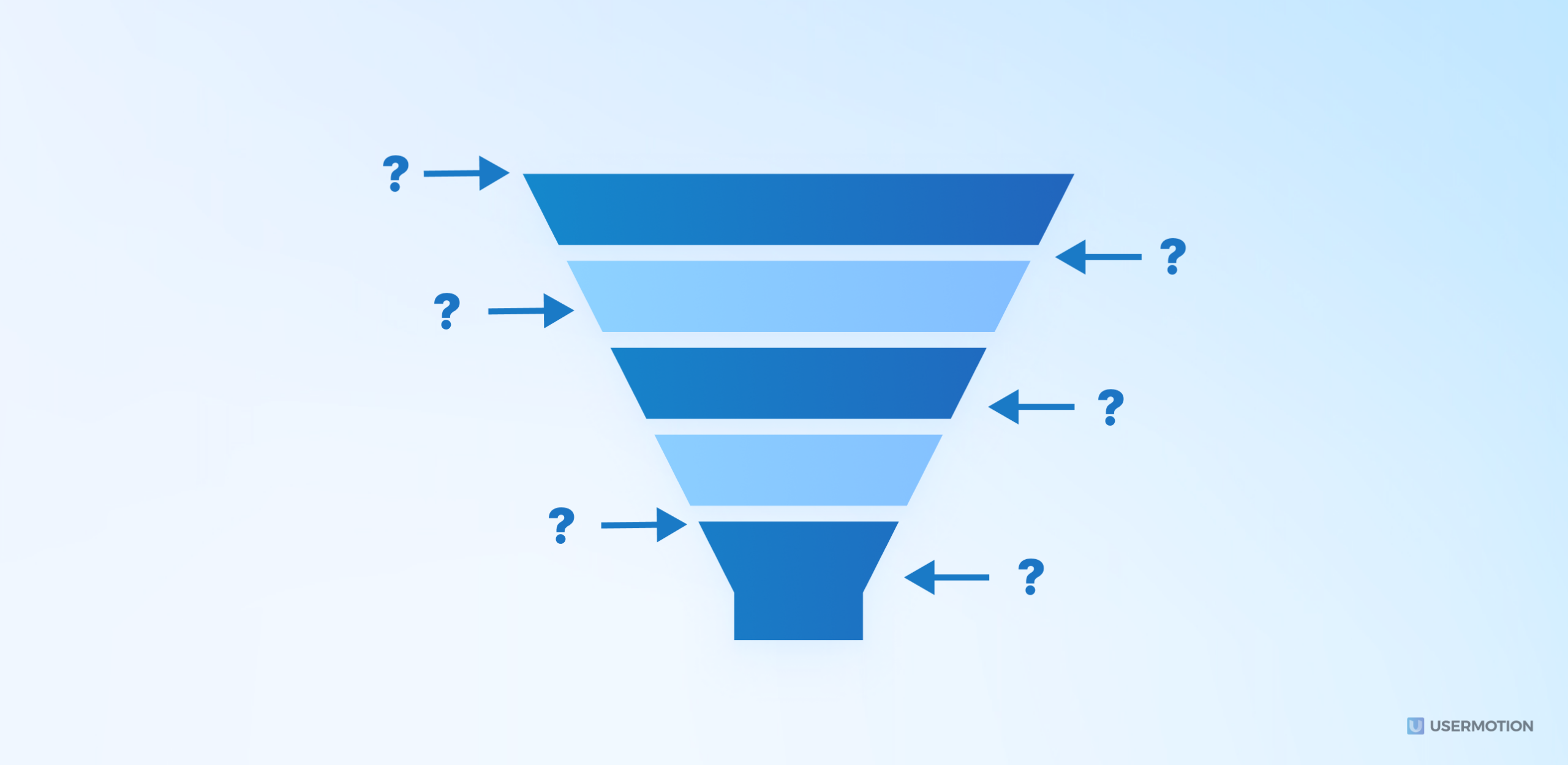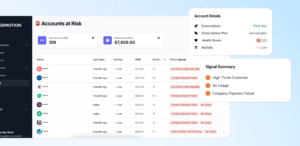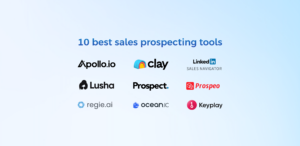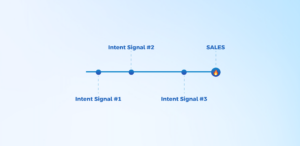The sales process is a dynamic and complex journey, with multiple stages and touchpoints. One of the most critical steps in this journey is the identification and qualification of potential customers, a process that relies heavily on the use of sales qualifying questions. These questions are the compass guiding your sales team through the vast sea of leads, helping them identify viable prospects and navigate towards successful deals.
Key Takeaways
- Sales qualifying questions help sales reps effectively engage prospects, determine lead fit, guide conversations toward customer needs, and prioritize high-potential leads for optimized sales cycles and long-term customer relationships.
- Questions should be framed around key categories—authority, need, urgency, and budget—to understand a prospect’s decision-making process, pinpoint challenges, assess timelines, and evaluate financial readiness for your product or service.
- Effective use of sales qualifying questions requires adapting them to the context of different industries, actively listening to prospects, measuring impact via KPIs, and avoiding common mistakes such as neglecting customization or overemphasizing budget.
The Importance of Sales Qualifying Questions

Your sales team can significantly benefit from the use of sales qualifying questions. They enable sales representatives to engage effectively with prospects and pose pertinent questions for lead qualification. This comprehensive assessment aids in determining the likelihood of a potential customer being a good fit for the product or service they have shown interest in. Moreover, utilizing sales qualifying questions facilitates the closure of more deals with reduced effort, shortens the sales deal cycle, and helps in acquiring long-term customers. Some key benefits of using sales qualifying questions include:
- Effective engagement with prospects
- Better understanding of customer needs and preferences
- Improved lead qualification
- Increased chances of closing deals
- Shortened sales deal cycle
- Acquisition of long-term customers
Sales representatives can streamline the entire sales process and improve lead qualification by identifying the need for a product and engaging with the relevant individuals. Using sales qualification questions to prioritize suitable prospects is an effective sales strategy for conserving time and resources and enhancing the chances of deal closures. Implementing a sales qualification process can further optimize these efforts.
Early identification of this commitment helps prevent future dissatisfaction and fosters the potential for a long-term relationship.
Streamlining the Sales Process
Sales qualifying questions hold the distinct benefit of making the sales process more efficient. Giving priority to high-quality, qualified leads becomes imperative considering that a typical sales representative needs 128 leads to close one deal. By early identification and elimination of unqualified prospects using a sales qualifying question, sales representatives can expedite the sales process and enhance the probability of successfully closing deals, ultimately helping to qualify leads more effectively.
Sales representatives need to:
- Be cognizant of who the decision-makers are within a prospect’s organization
- Understand the complexities of the purchasing process
- Know which departments are involved
This knowledge enables them to customize their approach and readiness for further discussions with the pertinent stakeholders, improving sales lead qualification.
Enhancing Customer Experience
Sales qualifying questions also play a significant role in enhancing the customer experience. By enabling a comprehensive understanding of the customer’s individual needs and challenges, sales representatives are empowered to provide tailored and impactful solutions. Recognizing a prospect’s pain points is important because these often drive actions. Having a clear understanding of these challenges can expedite the deal closure, particularly if the prospect is encountering substantial obstacles that your solutions can resolve.
Comprehending the reasons behind a prospect’s search for a solution provides a valuable perspective on what motivates them, allowing for a sales pitch tailored to their unique situation. Moreover, by gaining an understanding of a prospect’s previous efforts to address their challenges, sales representatives can steer clear of suggesting repetitive solutions and instead present more pertinent and efficient other solutions that leverage past experiences.
Key Categories of Sales Qualifying Questions

Four key categories broadly encompass sales qualifying questions:
- Authority: Assessing a prospect’s decision-making authority
- Need: Understanding the prospect’s requirements
- Urgency: Determining the prospect’s timeline
- Budget: Evaluating the prospect’s financial capability
Each of these categories has a significant role in assessing a prospect’s decision-making authority, requirements, timeline, and financial capability.
While authority and need-based questions help in identifying the decision-makers and understanding the challenges the prospect is facing, urgency and budget questions aid in determining the timeline for solving their problem and their financial capacity to invest in a solution.
All these factors together provide a comprehensive understanding of the prospect’s situation and their potential as a customer.
Authority
Authority questions are a key category of sales qualifying questions that help in identifying the decision-makers and influencers within the prospect’s organization. By asking questions like ‘How does your company evaluate new solutions?’ and ‘What’s your purchasing process?’, sales representatives can understand the internal decision-making process and identify the key players who have the ultimate decision-making power in a sale.
Directing sales efforts towards individuals who have the authority to approve and progress potential deals is vital in making the purchase approval process work. This ensures that sales efforts are targeted towards the appropriate individuals, thereby increasing the chances of successfully closing deals.
Need
Need-based questions play a significant role in revealing a prospect’s challenges. By inquiring about the current challenges, previous efforts to address them, and the desired outcome, sales representatives can gain a comprehensive understanding of the prospect’s needs and pain points.
Comprehending a prospect’s challenges allows sales representatives to tailor their pitch to address specific needs. It also helps in identifying which prospects are worth pursuing, thereby making the sales process more efficient and effective.
Urgency
Urgency-related questions are instrumental in establishing the prospect’s timeline to resolve their issue. By asking questions like ‘How soon do you want to implement the solution?’ and ‘What deadlines are you currently up against?’, sales representatives can understand the specific timelines the prospect is dealing with.
Comprehending a prospect’s urgency aids in ranking sales leads. It allows sales reps to allocate their time and resources towards prospects with higher conversion potential and establish a realistic time frame for the sales cycle.
Budget
Budget questions are key in assessing the prospect’s financial ability and their readiness to invest. By asking questions like ‘What is the potential return on investment?’ and ‘What is your current expenditure?’, sales reps can assess the prospect’s financial capacity and willingness to invest in a solution.
Comprehending a prospect’s ability to afford your offerings is vital, given the significant role cost plays in a company’s decision-making process for new products and services. This aids in effectively qualifying leads and focusing sales efforts on leads with the genuine potential for conversion into sales.
Top 15 Sales Qualifying Questions

Having discussed the four categories of sales qualifying questions, we will now explore the top 15 sales qualifying questions that every sales rep should be familiar with. These questions provide a comprehensive approach to lead qualification and are divided into the following categories:
- Authority
- Need
- Urgency
- Budget
Remember, these questions should not be used as a rigid script but should be adapted to fit the specific situation, industry, and prospect. The aim is not to interrogate the prospect but to engage in a meaningful conversation that helps understand their needs, challenges, and decision-making process.
Authority Questions
Authority questions help identify the decision-makers and influencers in the prospect’s organization. Examples of these questions include:
- How does your company evaluate new solutions?
- What’s your purchasing process?
These questions help sales reps understand who holds the decision-making authority and influence within the prospect’s organization.
Sales representatives need to pose authority questions clearly, justifiably, and specifically, while prioritizing active listening and crafting inquiries that elicit insightful and actionable responses. This approach ensures that sales efforts are focused on the right individuals who have the power to authorize and advance potential deals.
Need-Based Questions
Need-based questions are crucial in identifying the prospect’s challenges and pain points. Questions like:
- What are your current challenges?
- What have been your previous efforts to address these challenges?
help in gaining a thorough understanding of the prospect’s needs.
Need-based questions also aid in tailoring the sales pitch. By understanding the prospect’s challenges, sales reps can tailor their pitch to address these specific needs, thereby making the sales process more effective and efficient.
Urgency-Related Questions
Urgency-related questions assist in identifying the prospect’s timeframe for resolving their issue. By asking questions like
- How soon do you want to implement the solution?
- What deadlines are you currently up against?
sales reps can understand the prospect’s urgency in solving their problem.
Comprehending a prospect’s timeline is useful in ranking sales leads. It allows sales reps to allocate their time and resources towards prospects with higher conversion potential and establish a realistic timeframe for the sales cycle.
Budget Questions
Budget questions help assess the prospect’s financial capacity and willingness to invest in a solution. By asking questions like
- What is the potential return on investment?
- What is your current expenditure?
sales reps can assess the prospect’s financial capacity and willingness to invest in a solution.
Sales representatives need to directly ask about the prospect’s budget and, once a figure is given, follow up with open-ended questions to gain insight into the prospect’s pain points, requirements, and the value they aim to achieve. This approach helps in focusing sales efforts on leads with genuine potential for conversion into sales.
Adapting Sales Qualifying Questions for Different Industries
Sales qualifying questions shouldn’t follow a one-size-fits-all approach. Instead, they should be adapted to fit different industries as each industry has its own unique needs, challenges, and decision-making processes. For example, in the technology industry, sales reps might ask about the particular business challenge the prospect aims to address with technology and gain insight into their existing processes, tools, and technologies.
In the healthcare industry, sales reps might emphasize specific aspects such as the prospect’s medical needs, budget for healthcare solutions, and their goals for improving patient care or operational efficiency. Similarly, in the manufacturing industry, sales reps might inquire about the manufacturing challenge they are seeking to address and their previous efforts with alternative solutions.
Tips for Implementing Sales Qualifying Questions in Your Sales Process
Effectively deploying sales qualifying questions in your sales process is key to attaining optimal outcomes. One of the key tips for successful implementation is active listening. This helps sales reps gain a deeper understanding of the prospect’s needs and concerns, ask pertinent follow-up questions, and establish a strong rapport and trust with the prospect.
Another important tip is to tailor the sales qualifying questions according to the industry and prospect. By taking into account the particular needs, difficulties, and objectives of the industry, and adjusting the questions accordingly, sales reps can engage more effectively with the prospects and improve their lead qualification process.
Measuring the Impact of Sales Qualifying Questions
Evaluating the impact of sales qualifying questions is essential to assess their effectiveness and make necessary modifications. To measure their impact, you need to track key performance indicators (KPIs) such as:
- Total revenue
- Net revenue retention (NRR)
- Repeat customer rate
- Profit margin
- Revenue per head benchmarks
- Customer lifetime value
Sales qualifying questions also have a significant impact on lead conversion rates, the length of the sales cycle, and overall sales efficiency. They enable sales reps to pinpoint high-quality leads with a higher likelihood of conversion and allocate their resources more effectively, ultimately enhancing the probability of converting the lead into a customer.
Common Mistakes to Avoid When Using Sales Qualifying Questions
Despite the potency of sales qualifying questions, certain errors can diminish their effectiveness. Some of the common mistakes to avoid include:
- Failing to define the ideal customer profile
- Bypassing the qualifying step
- Neglecting to tailor questions for various industries and individual prospects.
Another common mistake is exclusively focusing on the prospect’s budget. While understanding the prospect’s financial capacity is important, it should not overshadow the understanding of their needs, authority, and urgency. It’s also important to avoid deal breakers such as asking too many, irrelevant, or insufficient questions as this can lead to missed opportunities and inefficiencies.
Summary
To wrap up, sales qualifying questions are indispensable tools in the sales process. They help identify potential customers, streamline the sales process, and enhance customer experience. By understanding the four key categories of sales qualifying questions – authority, need, urgency, and budget – and adapting them to different industries and prospects, sales reps can effectively qualify leads and improve their sales efficiency. Remember to measure the impact of these questions regularly and avoid common mistakes for optimal outcomes.





